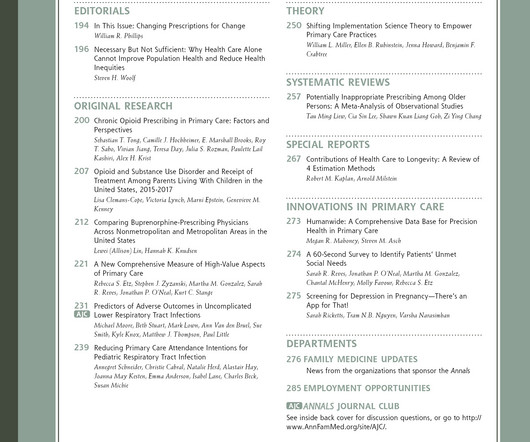Evaluating the Impact of a Longitudinal Clerkship Lecture on Medical Students Knowledge and Response to Human Trafficking [Education and training]
Annals of Family Medicine
NOVEMBER 20, 2024
People who experience HT interact with the healthcare system before, during, and after the period of victimization, yet there remains limited knowledge and intervention among healthcare professionals. Screening knowledge was 92% post session, 75% at 3 months, 97% at 6 months, and 75% at 12 months.






















Let's personalize your content